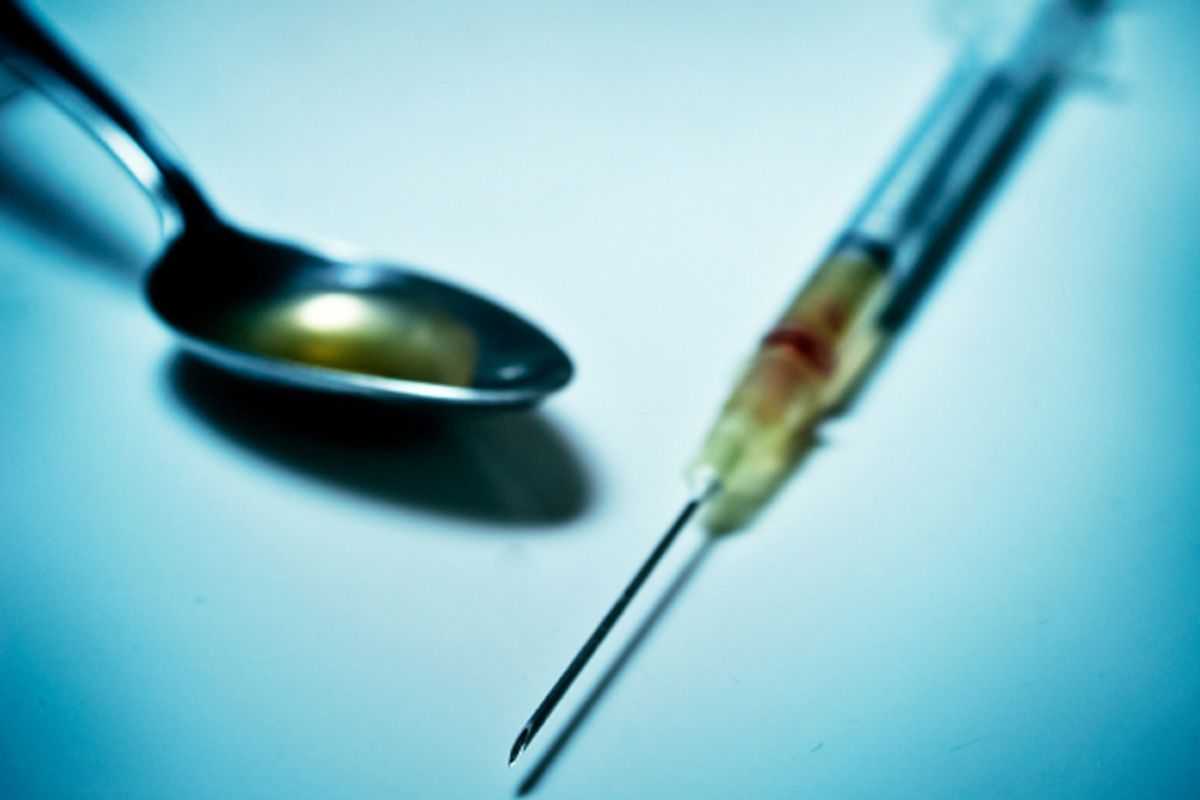What do you know about ibogaine treatment for opiate addiction?
Ah, ibogaine. It just so happens that ibogaine and I have a long history: though I never took it, I knew Howard Lotsof, the former heroin addict whose own recovery began in 1962, when he accidentally discovered that ibogaine can relieve heroin withdrawal. I wrote about ibogaine as a potential “alternative treatment” detox drug, in fact, in my first book, Recovery Options. As a fan of psychedelics who finds their therapeutic potential intriguing—and as someone who likes to see people in recovery advance the field—I’ve followed its highs and lows with great interest.
Ibogaine is the product of the rootbark of an African rainforest shrub, Tabernanthe iboga, and is used ceremonially by the Bwiti tribe of Western and Central Africa to induce visions and shamanic experience. (In 2000, Gabon declared this controversial source of Bwiti spirituality a “national treasure.”) While it has been categorized as a psychedelic, it is more intense and longer lasting than LSD or mushrooms; it also has dissociative effects and effects on motor control, similar to those of the anesthetic ketamine. In the brain, it affects multiple neurotransmitter receptors, making it difficult to discern which effects are most significant.
While animal and human research data show that ibogaine undoubtedly does relieve opioid withdrawal—and the drug is now being used in dozens of clinics around the world, often illegally—it’s important to know first that, sadly, it is apparently not as safe as was once believed. It is illegal in the US, although St. Kitts and Mexico have government-regulated facilities that offer it legally—in Mexico it is considered an “experimental” drug.
At least 19 people have died while taking ibogaine; most of them had pre-existing medical problems and many used other drugs on top, but the drug itself still appears to be risky to the heart. In fact, a major website that supports ibogaine therapy suggests that it has a death rate of 1 in 300, a mortality risk so high that this alone would likely preclude FDA approval if the drug was proven effective and the danger could not be mitigated.
Heroin addiction, however, is itself life threatening, and many people hear rumors that ibogaine is a permanent “cure”—and they may conclude that it’s worth the risk. But again, it’s not that simple, as Lotsof’s own early experience with the drug suggests.
Lotsof first took ibogaine because, like many addicted people, he liked to try various drugs. After a several-day trip that involved “waking dreams” and the sensation that life memories were being replayed, he was astounded to discover that he had no desire for heroin and no physical symptoms of withdrawal. After that experience, he made promoting ibogaine as an addiction treatment his life’s mission.
For Lotsof, ibogaine was it: he felt cured and did not relapse. But the addicted friends with whom he’d taken it that first time had a different reaction, he once told me. While they, too, had no withdrawal symptoms, that didn’t mean they were through with heroin. In fact, they immediately went out to score once the trip had ended. When asked why, they said they were junkies who simply liked using heroin.
In other words, if you don’t want to quit—and if you don’t have a new life purpose like promoting an addiction cure (!) or at least some social support—ibogaine won’t do much more than any other type of detox. It’s not exactly nothing to have a psychedelic experience and come through detox without suffering physical withdrawal. But that’s not all you need to end most addictions.
Promoters of ibogaine have often ignored these facts, sadly. I can’t tell you how many magazine articles have appeared over the years claiming that a conspiracy exists in the pharmaceutical industry and/or among drug warriors to suppress this seemingly miraculous “cure” for addiction, offering one dose to solve all drug problems forever. While it may help some, it’s not a panacea.
Lotsof also unfortunately associated ibogaine with the release of “repressed memories” of abuse in some of his talks and writing—a concept that is highly problematic because the chance of false memories is magnified when drugs or hypnosis are used to examine the past. While many addicts have genuine and significant histories of trauma that they may recall while under the influence, it is not at all clear that this has anything to do with any therapeutic effect of the drug or the accuracy of the recall.
So, what do I think of ibogaine, after all this? It offers pharmacologists a place to start in developing safer drugs that provide similar effects. But it’s definitely not something I’d suggest anyone I care for take as a first or even second or third choice. (Personally, I find the idea of combining detox with an intense, even traumatic, psychedelic trip that might kill me more terrifying than withdrawal alone, but that’s just me.)
That said, if someone is at high risk of death after years of addiction and failed treatments and is unwilling to do anything else anyway, I can understand the choice. In that case, I’d try to find the safest, most regulated clinic possible—absolutely one that does heart monitoring—and be sure first that the person had medical tests that at least ruled out the obvious heart and liver problems that are known to increase danger.
It is true that government fears about psychedelics and pharma patent issues have gotten in the way of ibogaine research—and I wish there was better data available. But as it stands now, with underground clinics around the world and clear evidence for mechanisms by which it may be toxic, it’s better to see ibogaine simply as evidence that a psychedelic, withdrawal-blocking and possibly craving-fighting drug is possible, not as a viable current treatment option for most people with opioid addictions.


Shares